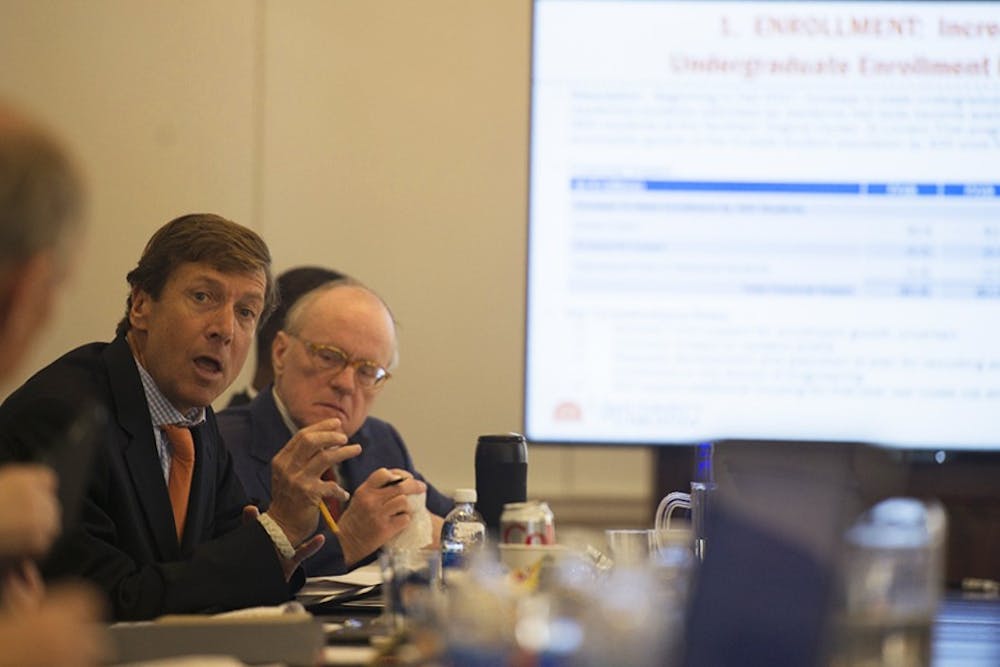One of the primary concerns for students leading into Virginia’s recent gubernatorial election was the governor’s power to appoint members to the University’s Board of Visitors. Given that the Board of Visitors has extraordinary influence over the direction of the University, it is no wonder it captures student attention. As a public institution, there is a measure of intuition behind the governor’s power of appointment over the board, seeing as the University receives a significant amount of public funding. However, there is something inherently problematic behind giving the governor such broad powers of appointment.
As is common in other sectors of government subject to appointment, appointees to the Board of Visitors tend to identify politically with the governor. While this alone isn’t necessarily a problem, it becomes troubling when considering that many current board members have contributed large sums of money, sometimes hundreds of thousands of dollars, to gubernatorial candidates. While there’s little disagreement that the majority of appointees are at least minimally qualified, it begs the question of whether this process leads to the preferential treatment of wealthy donors over those who might otherwise be more appropriate. It is insulting to think that the University would be granted as a reward for big-money donors.
There exists a series of checks on the governor’s appointment power to prevent any brazenly unqualified political patrons from securing a seat on the board. However, there is evidence that they are simply too weak. For example, the Virginia Commission on Higher Education Board Appointments issues recommendations for appointees to the Board of Visitors for all public schools. However, the recommendations put forward by this commission are just that, and the governor is free to disregard them. Furthermore, the CHEBA’s recommendations have so far enabled the overrepresentation of the wealthy, drawing their impartiality into question. Another purported check is the power of the General Assembly to confirm nominees. However, this does not mitigate the influence of monied interests, as assembly members benefit from political contributions as well. In addition, this step in the appointment process is largely perceived as a rubber stamp for all but the most controversial appointees.
Beyond the problem of political patronage, high turnover on the board due to periodic political rotation in state government handicaps the effective operation of the University. Because the Board of Visitors serves at the leisure of the governor, when a new party takes control of the governor’s mansion it’s not uncommon to replace the appointees from the previous governor. This turnover leads to a loss of the institutional knowledge that comes with long-term continuity in leadership. While this might make sense if the goal is drastic change, it could be well argued that periodic dramatic upheaval is not the desirable status quo for an institution of higher learning. Students would be far better served by a board with a wealth of institutional knowledge and experience in leading universities, with calculated reform when deemed necessary.
An important part of the reform process would include student input. As it stands, despite lofty rhetoric of student self governance, the student body is largely excluded from the appointment process. This contradiction is particularly conspicuous when considering how influential the Board is over the University. This specific issue could be addressed by meaningfully incorporating Student Council into the appointment process, allowing it to suggest potential nominees and hold open hearings for appointees to the Board. An ideal system would take input from a range of different sources, including students, alumni and staff, while also staggering appointments to avoid losing important institutional knowledge. While the University will surely not burn down or careen into insolvency without reform, it’s clear that modifying the process of appointment to the Board of Visitors would be beneficial to the community.







